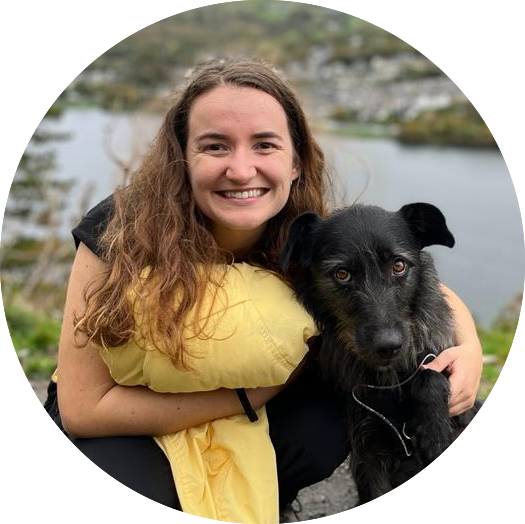Overview
Dr. Wiltshire leads the Integrative Speech Research Group.
The Integrative Speech Research Group takes an interdisciplinary approach to studying the speech production system. We are interested in how the brain and vocal tract work to produce speech.
We use a range of methods, often combining them in novel ways, to address the entire speech system. The lab has expertise in:
Brain Imaging: fMRI, Multi-Parameter-Mapping, Diffusion Weighted Imaging, MRI-compatible fNear Infra-Red Spectroscopy. We have access to a research-dedicated 3T MRI in the basement!
Brain Stimulation: Transcranial Electrical Stimulation, Transcranial Magnetic Stimulation (Motor Evoked Potentials and repetitive protocols, MRI-guided technology)
Articulography: Vocal Tract (or Real Time) MRI, Electromagnetic Articulography
We work with typical speakers and those with diverse speech differences, including developmental and acquired stuttering and Parkinson's disease. We work closely with charities, such as STAMMA to develop and share our work.
We always use co-production methods when designing, running and sharing our work. Please get in touch if you are interested in working with us!
We host a Journal Club with STAMMA (The British Stammering Association).
Additional Contact Information
Email: c.wiltshire@bangor.ac.uk
Qualifications
- DPhil: Investigating Speech Motor Control Using Vocal Tract Imaging, fMRI, and Brain Stimulation
University of Oxford, 2020
Research Interests
Dr. Wiltshire's research aims to understand the neural control of speech production, with a specific interest in developmental stuttering.
During her postdoctoral fellowship at the Institute for Phonetics and Speech Processing, Ludwig-Maximillains-University (LMU), Munich she combined brain stimulation techniques (Transcranial Magnetic Stimulation) and articulography (Electromagneticarticulography, vocal tract MRI) to investigate the neural processes underlying the initiation and inhibition of speech movements in people who stutter and people who are typically fluent.
Dr. Wiltshire completed her DPhil at the University of Oxford in 2020, with Kate Watkins. During her DPhil, she contributed to a large randomised control trial looking at whether tDCS can enhance fluency in people who stutter (INSTEP trial). Within this, she used a range of techniques, including tDCS, TMS and brain and vocal tract MRI, to investigate the neural control of speech in people who stutter and people who are typically fluent.
Postgraduate Project Opportunities
Anyone interested in postgraduate opportunties with the Integrative Speech Research Group should contact c.wiltshire@bangor.ac.uk in the first instance to informally discuss potential topics/interests.
Publications
2024
- PublishedSpeaking to a metronome reduces kinematic variability in typical speakers and people who stutter.
Wiltshire, C., Cler, G. J., Chiew, M., Freudenberger, J., Chesters, J., Healy, M. P., Hoole, P. & Watkins, K. E., 16 Oct 2024, In: PLoS ONE. 19, 10, p. e0309612
Research output: Contribution to journal › Article › peer-review
2022
- PublishedCharacteristics of articulatory gestures in stuttered speech: A case study using real-time magnetic resonance imaging
Lu, Y., Wiltshire, C. E. E., Watkins, K. E., Chiew, M. & Goldstein, L., 10 Apr 2022, In: Journal of Communication Disorders. 97, 106213.
Research output: Contribution to journal › Article › peer-review
2021
- PublishedElevated iron concentration in putamen and cortical speech motor network in developmental stuttering
Cler, G. J., Krishnan, S., Papp, D., Wiltshire, C. E. E., Chesters, J. & Watkins, K. E., 29 Nov 2021, In: Brain: A journal of Neurology. 144, 10, p. 2979-2984 6 p.
Research output: Contribution to journal › Article › peer-review - PublishedSpeech Movement Variability in People Who Stutter: A Vocal Tract Magnetic Resonance Imaging Study
Wiltshire, C. E. E., Chiew, M., Chesters, J., Healy, M. P. & Watkins, K. E., 16 Jul 2021, In: Journal of Speech, Language and Hearing Research. 64, 7, p. 2438-2452 15 p.
Research output: Contribution to journal › Article › peer-review
2020
- PublishedFailure of tDCS to modulate motor excitability and speech motor learning
Wiltshire, C. E. E. & Watkins, K. E., Sept 2020, In: Neuropsychologia. 146, p. 107568
Research output: Contribution to journal › Article › peer-review
Activities
2024
- Neuroscience Spotlight at the Senedd
Neuroscience and Mental Health Research: Spotlight on Wales
Presentation at the Senedd to MS at British Neuroscience Association event.
17 Sep 2024
Activity: Invited talk (Speaker)
2023
- North Wales Speech and Language Exchange (External organisation)
Co-creator and committee member for the North Wales Speech and Language Exchange. This is a new initiative to bring together clinicians, researchers and the public who have an interest in speech, language and communication in North Wales.
17 Oct 2023 →
Activity: Membership of network (Chair) - The North Wales Speech and Language Exchange
The inaugural event to kick-off The North Wales Speech and Language Exchange: a new initiative to foster engagement between the public, clinicians, and Bangor University researchers with a personal or professional interest in speech, language, and communication needs.
17 Oct 2023
Links:
Activity: Participation in Academic workshop, seminar, course (Organiser)
Projects
-
01/02/2025 – 15/07/2025 (Active)
-
01/01/2024 – 30/04/2025 (Active)
-
Movement control in people who stutter: a whole system approach
01/12/2023 – 30/04/2025 (Active)
Other Grants and Projects
Below are active projects.
For past projects, see https://www.charlottewiltshire.com/research/research-summaries
Speech Movement Control in People who Stutter: Evidence from the Supplementary Motor Area. Funded by DFG (German Government Funding) and European Research Council (Horizon 2020).
Cognitive Flexibility and Stuttering Funded by DFG (German Government Funding) and European Research Council (Horizon 2020).
Movement control in people with developmental stuttering Funded by the Welsh Crucible. In collaboration with Swansea University and Cardiff Metropolitan University.
Investigating the experiences of Welsh-English bilinguals who stutter. Funded by the Welsh Crucible. In collaboration with Aberystwyth University.

